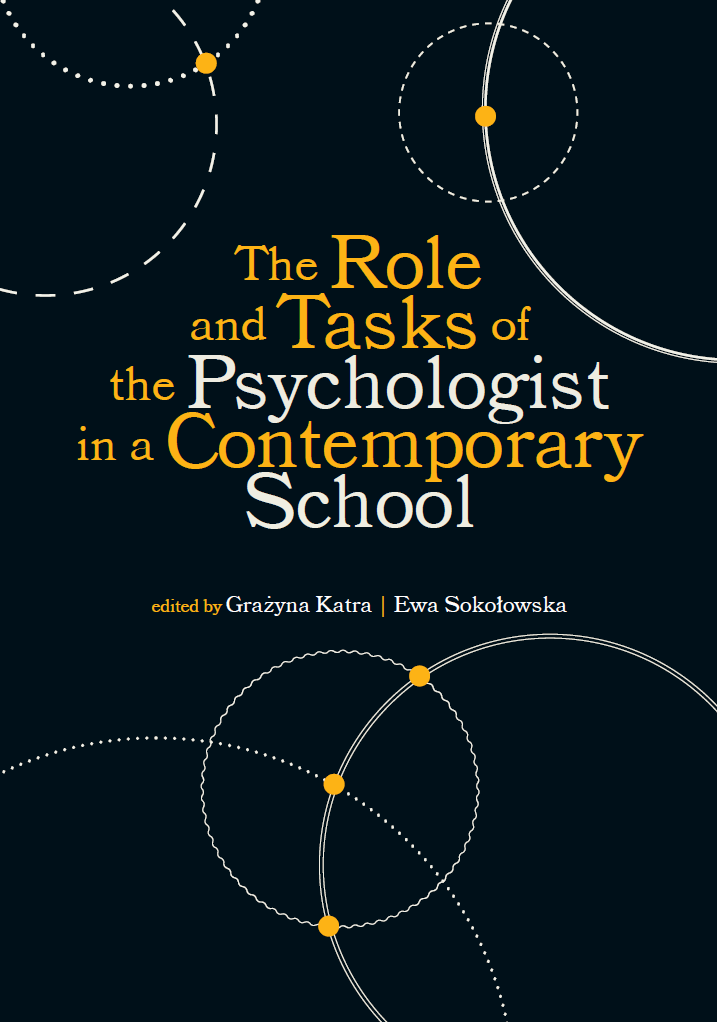Specific problems in the development of a younger school-age child: directions and forms of preventive measures
Specific problems in the development of a younger school-age child: directions and forms of preventive measures
Author(s): Małgorzata E. Babiuch-Hall
Subject(s): Psychology
Published by: Wydawnictwa Uniwersytetu Warszawskiego
Keywords: adjustment to school environment; developmental achievements; developmental disharmonies; developmental disorders; educational maturity/school readiness; gifted and talented children; monitoring
Summary/Abstract: This chapter presents the principal difficulties faced by many children at the early stages of education, and some actions which may be taken by school psychologists to prevent their occurrence or at least to limit their negative consequences. The first important task of psychologists and pre-school teachers is to evaluate school readiness of children before the start of their compulsory education and deliver help to those children who do not present sufficient educational maturity (e.g. remedial classes, a delay of compulsory education). Another very important task for psychologists is to observe how well children adapt to new environments and new requirements. Some diffi culties experienced by pupils at the start of their school experience may be related to developmental disharmony, disruptions in development or specific disorders (e.g. dyslexia, ADHD, autism), and the need to be taken care of before they become a source of serious and long-lasting problems. This is a task for psychologists, teachers, and parents working together. Attention by school psychologists should also be focused on gifted and talented children. Those children do not normally experience learning diffi culties, but they do require teachers’ attention to feel as though they are noticed and appreciated. They also need a more challenging curriculum than an average student to maintain their motivation and interest in learning new knowledge and skills, as well as teach them the value of effort in learning. Therefore, the most important tasks of school psychologists at the early stages of school education are: to monitor the process of adjustment by pupils to new environments and new roles; to identify children who experience diffi culties at the start of school education, and to arrange and coordinate help for those children; and to follow up not only with those children with special educational needs but also with gifted and talented students.
Book: The Role and Tasks of the Psychologist in a Contemporary School
- Page Range: 61-75
- Page Count: 15
- Publication Year: 2021
- Language: English
- Content File-PDF

